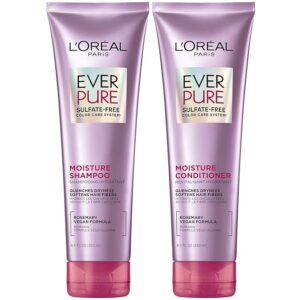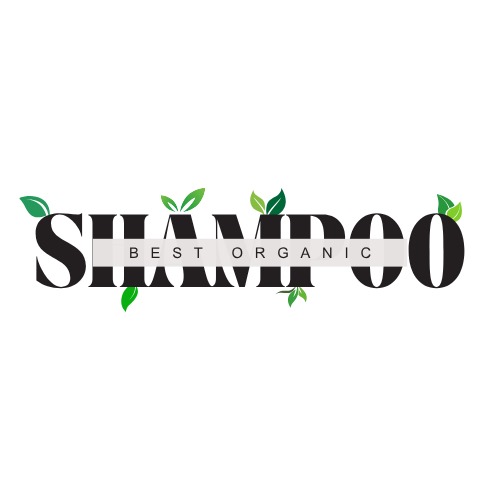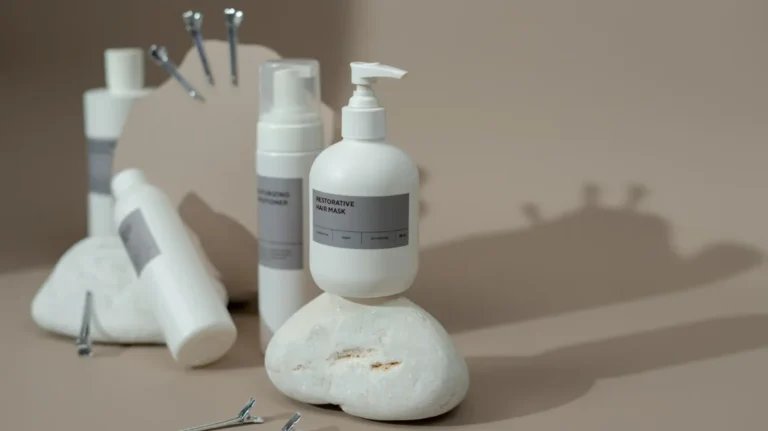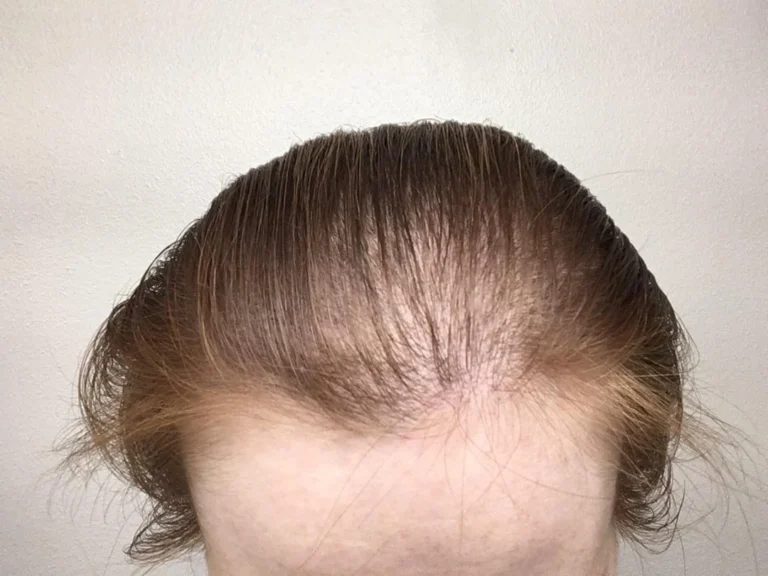What Is Sulfate Free Shampoo? A Simple Guide for Healthier Hair 2025
What is sulfate free shampoo? It’s a question many of us are asking as these gentler hair cleansers become increasingly popular, particularly among people with curly or dry hair types. If you’ve browsed the hair care aisle recently, you’ve likely noticed countless bottles proudly displaying “sulfate-free” on their labels.
We’ve seen significant growth in the sulfate-free hair care market, with brands now offering numerous options for consumers seeking healthier alternatives. As someone who cares about hair health, I understand the confusion when trying to determine what is the best sulfate free shampoo for your specific needs. In this guide, I’ll explain exactly what these products are, why they might benefit your hair, and how to choose the right one for your unique hair type in 2025.
What are sulfates and why are they in shampoo?
Sulfates represent a group of chemicals that function as cleansing agents in many personal care products. These compounds are surfactants—substances that reduce surface tension between liquids, allowing water to mix with oils and dirt for effective cleaning. For decades, these powerful cleansers have been staples in the shampoo industry, though their effects on hair health remain debated.
Common types of sulfates used in hair products
The most prevalent sulfates in shampoos include:
- Sodium Lauryl Sulfate (SLS) – The harshest variety, often compared to dish soap ingredients. It’s highly effective at stripping away oils but potentially irritating.
- Sodium Laureth Sulfate (SLES) – A milder alternative with a different chemical structure, making it less likely to cause irritation.
- Ammonium Lauryl Sulfate (ALS) – Features a more complex molecular structure that typically makes it gentler on the scalp than SLS.
These ingredients have been used in personal care products since the 1950s and remain in over 90% of all shampoos.
What sulfates do to your hair and scalp
Sulfates create that satisfying lather we’ve come to expect from shampoos. However, they can be too effective at their job. While they excel at removing dirt, oil, and product buildup, they often strip away too much of your hair’s natural moisture.
Over time, this can lead to:
- Dry, brittle hair prone to breakage
- Scalp irritation and dandruff
- Faster fading of color-treated hair
- Increased frizz due to negative electrical charges
Furthermore, sulfates may cause acne along the hairline in some individuals and aggravate skin conditions like eczema or psoriasis.
Why some shampoos still use them
Despite potential drawbacks, many shampoos continue to include sulfates for several reasons:
First, they’re extremely affordable ingredients, making them cost-effective for manufacturers. Additionally, they deliver the rich foam consumers associate with cleanliness—that satisfying lather signals to many that the product is working effectively.
Moreover, for those with naturally oily hair or heavy product buildup, sulfate-containing shampoos often provide the deep cleaning necessary. As Masami Hosono, founder of Vacancy Project salon, states, sulfates “are highly effective at cleaning your hair and scalp”.
Finally, sulfates help with product consistency and viscosity, creating the texture consumers expect from quality shampoos.
Understanding what sulfates are helps clarify exactly what makes a shampoo “sulfate-free” and why that might matter for your hair care routine.
What does sulfate-free shampoo mean?
In essence, sulfate-free shampoo refers to formulations that deliberately exclude sodium lauryl sulfate (SLS) and sodium laureth sulfate (SLES), replacing them with gentler cleansing alternatives. These products have gained tremendous popularity as consumers become increasingly concerned about harsh chemicals in their hair care products.
How sulfate-free formulas are different
Sulfate-free shampoos clean differently than their traditional counterparts. First, you’ll notice they produce less foam—a characteristic that often confuses first-time users. This reduced lathering doesn’t mean reduced cleaning power. Instead, these formulations rely on milder surfactants that clean effectively without stripping away natural oils.
Another notable difference is their gentler approach to cleansing. Traditional sulfate shampoos act aggressively, potentially disrupting your scalp’s natural moisture balance. In contrast, sulfate-free options preserve more of your hair’s natural oils, which helps maintain hydration and color vibrancy.
What ingredients replace sulfates
Manufacturers use several alternatives to create effective sulfate-free formulations:
- Decyl glucoside and lauryl glucoside: Plant-derived from coconut oil or glucose
- Sodium cocoyl isethionate: A gentle coconut-derived cleanser
- Cocamidopropyl betaine: Milder amphoteric surfactant
- Sodium lauryl sulfoacetate (SLSA): Despite the similar name, it’s much gentler than SLS
- Sodium cocoyl glycinate: A biodegradable, mild cleanser
Many sulfate-free shampoos combine several of these ingredients to achieve the right balance of cleansing power and gentleness. Consequently, you might notice longer ingredient lists on these products.
Is sulfate-free always better?
Despite their growing popularity, sulfate-free shampoos aren’t necessarily superior for everyone. For people with color-treated, dry, or damaged hair, sulfate-free options help preserve color and natural moisture. Likewise, those with sensitive scalps or skin conditions may benefit from their milder formulation.
Nevertheless, sulfate-free formulations typically cost more than traditional options. Furthermore, some users find them less effective at removing heavy product buildup or excess oil. Importantly, not all sulfate-free shampoos are equally gentle—their overall formulation matters just as much as the absence of sulfates.
For many people, alternating between sulfate and sulfate-free shampoos provides an ideal balance of deep cleaning and gentle maintenance. Ultimately, the best choice depends on your specific hair needs, sensitivity, and styling routine.
Benefits of using sulfate-free shampoo
Switching to sulfate-free formulations offers numerous advantages for your hair’s health and appearance. Understanding what is sulfate free shampoo means recognizing these benefits, which extend beyond simply avoiding certain chemicals.
Gentler on sensitive scalps
For those with scalp sensitivity, sulfate-free shampoos provide much-needed relief. These gentler formulations minimize the risk of irritation and inflammation that harsher detergents often cause. Indeed, if you experience dryness, itchiness, or have conditions like eczema or psoriasis, sulfate-free options help maintain your scalp’s natural pH balance, creating a healthier environment for hair growth.
Many sulfate-free formulas contain soothing ingredients like aloe vera, oatmeal, or tea tree oil that actively calm irritated scalps while cleansing effectively.
Helps retain natural oils
Notably, sulfate-free shampoos don’t strip away the essential oils your scalp naturally produces. These oils serve as your hair’s built-in moisturizer and protectant. Hence, preserving them leads to:
- Improved moisture retention
- Softer, shinier strands
- Healthier-looking hair overall
This benefit is especially important for those with naturally dry or curly hair textures that require additional moisture to look their best.
Better for color-treated hair
Color preservation ranks among the primary reasons people ask “what is the best sulfate free shampoo” for their needs. Traditional sulfates act like color assassins, breaking down dye molecules and washing them away with each shampoo. Subsequently, switching to sulfate-free formulas can significantly extend the life of your color, keeping it vibrant and fresh between salon visits.
Reduces frizz and dryness
Frizz-free hair might seem impossible, but sulfate-free shampoos bring you closer to this goal. By maintaining your hair’s natural moisture balance rather than disrupting it, these formulations help prevent the moisture imbalance that causes frizz. Therefore, hair appears smoother, more defined, and easier to manage.
Furthermore, people with curly, wavy, or textured hair often notice dramatic improvements in definition and manageability after making the switch, as their natural curl pattern isn’t disrupted by overly aggressive cleansing.
How to choose the best sulfate-free shampoo for your hair
Finding the right sulfate-free shampoo requires understanding both your hair’s specific needs and what makes these products different from conventional options. After grasping what is sulfate free shampoo, the next step is selecting one that works for your unique hair situation.
Know your hair type and needs
First, identify your hair type before purchasing. Different hair textures respond uniquely to sulfate-free formulations:
- Curly hair benefits from moisturizing sulfate-free options that maintain natural oils essential for curl definition
- Color-treated hair requires protective formulas that prevent color molecules from washing away
- Oily scalp might need sulfate-free shampoos with tea tree oil or green tea to balance oil production
- Dry or damaged hair thrives with hydrating ingredients like argan oil or shea butter
- Sensitive scalp needs gentle, calming formulations without irritants
Check the ingredient list
Beyond the “sulfate-free” label, examine what’s actually in the bottle:
- Look for plant-derived surfactants like decyl glucoside or sodium cocoyl isethionate
- Avoid harsh alternatives like cocamide DEA, propylene glycol, or hydroxysultaine
- Be wary of disguised sulfates—some companies rename SLS as “sodium lauryl sulfonate”
- Skip synthetic fragrances, which often contain hidden parabens
Look for certifications and labels
Quality indicators help identify truly effective sulfate-free shampoos:
- COSMOS Organic certification ensures organic ingredients
- B-Corp certification indicates ethical business practices
- EWG-verified means ingredients meet strict safety standards
- Clear “sulfate-free” labeling on packaging
Top picks for 2025
For 2025, consider these highly-rated sulfate-free options:

Conclusion
Sulfate-free shampoo offers a gentler alternative to traditional hair cleansers, though certainly not everyone needs to make the switch. Throughout this guide, we’ve explored what makes these products different and why they might benefit certain hair types. Most importantly, sulfate-free formulations preserve your hair’s natural oils while effectively cleaning without the harsh stripping action of SLS and SLES.
For those with color-treated, curly, or naturally dry hair, sulfate-free options undoubtedly provide significant advantages. Likewise, people with sensitive scalps will appreciate the reduced irritation these gentler formulas offer. However, those with extremely oily hair or heavy product buildup might still benefit from occasional use of traditional sulfate shampoos.
Remember that “sulfate-free” alone doesn’t guarantee a superior product. The overall formulation, including other ingredients and your specific hair needs, ultimately determines effectiveness. After all, what works beautifully for one person’s hair might fall flat for another’s.
My advice? Experiment with different sulfate-free options until you find your perfect match. Your hair deserves products tailored to its unique characteristics. Finally, listen to your hair—it will tell you what it needs if you pay attention to how it responds to different care routines. Understanding what sulfate-free shampoo truly offers empowers you to make the best choice for your healthiest hair in 2025 and beyond.
FAQs
Q1. What are the main benefits of using sulfate-free shampoo? Sulfate-free shampoos are gentler on the hair and scalp, helping to retain natural oils, reduce frizz, and prevent scalp irritation. They’re particularly beneficial for those with color-treated, dry, or curly hair, as they help maintain moisture and color vibrancy.
Q2. How does sulfate-free shampoo differ from regular shampoo? Sulfate-free shampoos use milder cleansing agents instead of harsh sulfates like SLS or SLES. They typically produce less foam but clean effectively without stripping away natural oils. These formulations are generally gentler on the hair and scalp, helping to maintain moisture balance.
Q3. Are there any drawbacks to using sulfate-free shampoo? While sulfate-free shampoos offer many benefits, they may not clean as deeply as traditional shampoos, which can be an issue for those with very oily hair or heavy product buildup. They also tend to be more expensive and may require using more product to achieve a thorough cleanse.
Q4. How do I choose the right sulfate-free shampoo for my hair type? To choose the best sulfate-free shampoo, consider your hair type and specific needs. Look for ingredients that address your hair concerns, such as moisturizing agents for dry hair or balancing ingredients for oily scalps. Check for certifications like COSMOS Organic or EWG-verified for quality assurance.
Q5. Can sulfate-free shampoos effectively clean oily hair? While sulfate-free shampoos can clean oily hair, they may not be as effective as traditional sulfate-containing shampoos for very oily scalps. Some sulfate-free formulations include ingredients like tea tree oil or green tea to help balance oil production. For extremely oily hair, alternating between sulfate-free and traditional shampoos might provide the best results.


